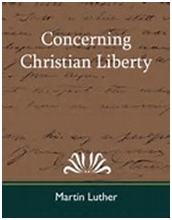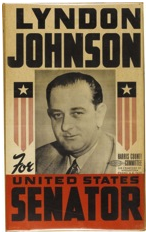“A Piece of My Mind”
June, 2017 Newsletter

Advancing Christian Faith and Values,
Defending Religious Liberty for All,
Supporting Civility and the Common Good
through Preaching, Teaching, Writing,
Activism and Reasoned Conversations
The Protestant Reformation at 500
1517 – 2017
Lessons from the Reformation #1
What Is God’s Will
When God Doesn’t Give Us His Will?
| A very important part of Reformation teaching is on the Will of God. What does God command? What does God forbid? And what should we do when God gives us neither a command nor a prohibition? Read more… |
The third question above focuses on what are called “indifferent things” or “morally neutral” things (“adiaphora” – “not at the heart”)—things God neither commands nor forbids. The topic has had a huge impact on my life.
 Christian Freedom has several features. One is “external freedom.” It includes, first of all, freedom from ceremonial and civil features of the Law of Moses.
Christian Freedom has several features. One is “external freedom.” It includes, first of all, freedom from ceremonial and civil features of the Law of Moses.
Martin Luther (1483-1546), as with other key reformers, saw the Mosaic Law as having three features: moral, civil and ceremonial (for some New Testament support for these distinctions, see: Mark 7:18-19; Acts 10:9-15; Acts 15:5-11; 1 Corinthians 7:19; Galatians 5:6).
The moral law (such as the Ten Commandments) continues as binding on Christians. This law is found throughout scripture and constitutes God’s will for his children.
The civil law governed the theocratic nation of Israel and continues to provide wise counsel, but God does not place it on civil governments today.
The ceremonial law governed such matters as feasts, holy days, food laws and sacrifices and, for the Christian, does not retain governance after the coming of Jesus. Rather, the ceremonial law has pictures and types that point to Jesus and are fulfilled in his life and ministry.
Luther wrote: “Thus it does not belong to the new law to set aside certain days for fasting and others not, as the law of Moses did. Nor does it belong that we make an exception of and a distinction between certain kinds of food…
Nor does it belong to designate some days as feast days and others not.”
Then he carries this thought over into Christian ceremonial observances like ornaments, kinds of songs or instruments used in worship, altar decorations, chalices and statues, religious garments. These are indifferent things, “shadows and signs of the real things.”
“For every day is a feast, all foods are permitted, every place is sacred, every time is a time of fasting, every kind of apparel is allowed, all things are free, only that we use moderation in their use and that love…be practiced.” *
Churches likewise are limited in the degree which they may constrain the consciences and conduct of the faithful. The Church may not add new articles of doctrine, command new works or ceremonies, interfere in secular law or give bishops power to issue commands as they will. **
Churches may employ special days, ceremonies, garments and the like in the worship of God so long as these practices show themselves useful and are not made mandatory or viewed as acts of merit before God.
The man or woman who lives by faith is able to freely partake of the things legalistic religion forbids, whereas the person with an evil heart corrupts even what is good. The Christian whose heart is formed by the Holy Spirit can make use of both “useful and delightful things in a holy manner with thanksgiving.”
“Everything he does in faith, even though in outward appearance it is most unimportant—such as the natural activities of sleeping, being awake, eating and drinking, which seem to have no godliness connected with them—is a holy work that pleases God.” “Secular” tasks are as holy as so-called spiritual tasks like praying and meditating. The only restrictions are that good things not be abused and the commandments of God (the moral law) be observed.
And here is a quote from Luther that I love: Our freedom as Christians “pertains to things about which God has given no command, as for example, outward actions. At table one is at liberty to take either pears or apples, to drink either beer or wine, to dress either in white or in black, and to go either to the one friend or the other. In such matters man has a choice, and it is certain that even these optional works become a worship of God and please God if you walk in the faith and abide by the commands of God or have a good conscience. People need to be taught such things.” *** Amen to that!!!
This is but “the tip of the iceberg” on indifferent things according to the reformer Martin Luther. I will explore other aspects of “indifferent things” later. But how can we apply what we have already seen?
First, how do we know the Will of God in situations where God has given no positive or negative commandment (adiaphoristic situations)? Consider this little story (Genesis 2:8-9, 15-17 New International Version):
 “Now the Lord God had planted a garden in the east, in Eden; and there he put the man he had formed. The Lord God made all kinds of trees grow out of the ground—trees that were pleasing to the eye and good for food. In the middle of the garden were the tree of life and the tree of the knowledge of good and evil.
“Now the Lord God had planted a garden in the east, in Eden; and there he put the man he had formed. The Lord God made all kinds of trees grow out of the ground—trees that were pleasing to the eye and good for food. In the middle of the garden were the tree of life and the tree of the knowledge of good and evil.
“The Lord God took the man and put him in the Garden of Eden to work it and take care of it. And the Lord God commanded the man, ‘You are free to eat from any tree in the garden; but you must not eat from the tree of the knowledge of good and evil, for when you eat from it you will certainly die.’”
Adam (and Eve) didn’t have to wake up in the morning and pray, “God, what is your will for my life today? Should I eat apples? Pears?” God had already given a positive commandment. “You may freely eat” (a very strong statement in the Hebrew). In fact, to ask “What is God’s will?” would show a lack of faith in God’s Word! And should Adam and Eve “crucify the flesh” and eat only out of necessity, lest they enjoy the good things of life a bit too much? No, the trees of the garden were both “pleasing to the eye and good for food.”
Were there any limits on liberty? Emphatically yes. God had given a negative command. “You must not eat from the tree of the knowledge of good and evil.” Man also had duties: tend and care for the garden.
How does this apply to us?
 We don’t have to ask about God’s will in the everyday matters of life. We are free to make our own choices bound only by God’s moral law and principles found in Scripture.
We don’t have to ask about God’s will in the everyday matters of life. We are free to make our own choices bound only by God’s moral law and principles found in Scripture.
We don’t have to ask, “What is God’s will?” even in the mega-choices of this life. “Should I buy this house or that car?” or “Which college should I choose?” or “What career should I enter?” We may use our minds and hearts, prayerfully informed by the Bible and good counsel, abridged or enhanced by circumstances, to make our own decisions in these matters. ****
In 1983 I had to make a decision whether to continue to teach at a Christian university or become the pastor of a church. Someone asked me, “Don, have you asked God what his will is on this?” My heart could confidently say,
“I don’t think God cares whether I continue to teach or become a pastor!” *****
Christian Freedom increases our enjoyment of life, our participation in God’s creation, our ability to be flexible in how we respond to different people and situations. But it also increases our responsibility for the decisions we make. No “punting” to “Well, I felt ‘led of the Lord’” in something that failed or “Well, I haven’t heard from God yet” for a decision that needs to be made.
Second, what about church ceremonies and practices? Have you ever known a Protestant church that argued over choir robes? Or pews? Or what garments the ministers should wear? Or how Communion ought to be served? Or what kinds of songs are “God’s songs”? (And you can think of many more!)
These are all areas of Christian Freedom. Many times a church has to make a decision because it can’t do things every way (like when services should start, their length and optional details). In these cases, members should speak their piece and then live in peace, following what their leaders decide.
Third, what about rules on how we choose to live our lives (such as what we may eat or drink)? Many churches and Christian institutions are very un-Reformation-like in their rules. If Jesus declared “all foods clean” (Mark 7:19) and the Apostle Paul instructed us that the Kingdom of God is not what we eat or drink (Romans 14:17), can’t we accept these clear words and mold our conduct and attitudes by them, offering liberty rather than judgments?
* Martin Luther, “Instructions for the Visitors of Parish Pastors,” Luther’s Works 40, p. 304.
One who observes some contemporary worship scenes today should wonder what has happened to “moderation” along with modesty.
** Martin Luther, “On the Councils and the Churches,” Works of Martin Luther V, pp. 193-99.
*** Martin Luther, Lectures on Genesis II, Luther’s Works, II, pp. 348-50.
**** I recommend Decision Making and the Will of God (Multnomah, 1980; revised 2004) by Garry Friesen. My views on knowing God’s will are basically the same, but I had already arrived at them before reading the book and discussing issues with Garry.
***** When we feel we must find positive signs of God’s will, we are also likely to take setbacks and failures as signs that we are not in God’s will, forgetting that problems and setbacks, even rejection and persecution, are features of life and service.
 Religious Liberty Vigilance –
Religious Liberty Vigilance –
“Congress shall make no law respecting an establishment of religion, or prohibiting the free exercise thereof, or abridging the freedom of speech, or of the press; or the right of the people peaceably to assemble, and to petition the Government for a redress of grievances.” – 1st Amendment
 President Trump’s Executive Order on Religious Liberty and its impact on the “Johnson Amendment”
President Trump’s Executive Order on Religious Liberty and its impact on the “Johnson Amendment”
– By Donald Shoemaker
President Trump has often leveled strong criticism against the “Johnson Amendment.” With a lot of fanfare the Trump Administration issued an executive order [reproduced in an addendum at the end of this newsletter] on May 4 which, in fact, did nothing about it—after all, it is the law of the land and can only be changed by Congress.
What the president did do was to usher in a new ethos, a supportive spirit on religious liberty issues, a commitment “to the greatest extent practicable and to the extent permitted by law, respect and protect the freedom of persons and organizations to engage in religious and political speech.”
 The “Johnson Amendment” forbids tax-exempt churches and other 501(c)3 organizations from endorsing or opposing a candidate for political office. It also forbids these groups from using a “substantial” portion of their resources to influence legislation. “Substantial” may be understood as “more than 5%”, a threshold that only the most politically activist churches would be in danger of crossing.
The “Johnson Amendment” forbids tax-exempt churches and other 501(c)3 organizations from endorsing or opposing a candidate for political office. It also forbids these groups from using a “substantial” portion of their resources to influence legislation. “Substantial” may be understood as “more than 5%”, a threshold that only the most politically activist churches would be in danger of crossing.
The “Johnson Amendment” had a nefarious origin. Lyndon Johnson, facing some pesky opposition to his re-election to the Senate in 1954, pushed this through Congress to stifle his critics. Johnson’s wily action meant it did not go through any of the proper vetting or hearing processes. As a result, there was no “sense of Congress” understanding that would help clarify exactly how the limitation applies [see endnote in addendum]. So it has had a murky history ever since.
It is my understanding that Johnson received support from the Catholic Church in his re-election bid. If so, it is unlikely that Johnson ever intended or thought about the sort of sweeping limitations on churches that have existed ever since. It is also quite unlikely that the ban was originally intended to influence what was said from pulpits.
President Trump’s executive order protects what the “Johnson Amendment” never forbade: the right of ministers and religious organizations to speak out on “moral or political issues from a religious perspective” so long as such speech would not be viewed as participation in a political campaign.
While I’m all in favor of the president restating religious rights and committing his administration to defend those rights, we should not make more of this statement than it actually said.
What may we say about repeal of the “Johnson Amendment” itself? Its repeal would be good news and bad news. Some observations…
First, it should be obvious but isn’t, restrictions on political activism by churches is not a First Amendment issue. It’s an issue of statutory law (the “Johnson Amendment”). We may feel it is in the “spirit” of the First Amendment, but Constitutional Law it is not. I mention this because some criticism of repealing or not enforcing the “Johnson Amendment” is so ballistic you would think the Constitution was at stake.
Second, it is odious that any person or any organization should have to give up their Constitutional right to free speech in order to receive a tax exemption. A court might someday overturn the “Johnson Amendment” on First Amendment grounds (free exercise of religion and freedom of speech).
Third, even if pastors were free to endorse or oppose candidates or to get heavily into political issues, I do not recommend this as healthy for churches. While our Gospel certainly has societal and political implications,
I truly believe we will be diluting, if not even corrupting, our message by lowering ourselves into the muck of partisan politics.
(I see rare exceptions to the above. For examples, if a state or national politician shows deep animus against religion in general or your own faith in particular, or if a local politician is outspokenly opposed to a church’s presence or ministries in the community, why should the church have to be neutral about such politicians?)
The biblical prophets and Jesus said much about issues that touch politics. But Jesus also said, “My kingdom is not of this world”. The Apostle Paul asserted his citizenship rights on occasion, but he also stressed, “Though we live in the world, we do not wage war as the world does. The weapons we fight with are not the weapons of the world. On the contrary, they have divine power to demolish strongholds” (2 Corinthians 10:3-4).
We should encourage good citizenship, participation by our members in the political process, social critiques and activism, and vocations in government (in the great biblical tradition of Joseph, Nehemiah and Daniel). But the church’s message and mission does not include partisan politics.
I don’t want to go to church to hear a politicized message. I want the church to be open to liberals and conservatives alike—a witness to the world that the love and truth of Christ transcend temporal barriers like politics.
This said, I would stress that liberal churches seem to transgress on this matter more than conservative churches do. And scarcely an election goes by where liberal and leftist candidates don’t get lauded in church services and receive the endorsement of ministers. I believe a leftist church is much more likely to alienate attendees who don’t share its political message. Still, excluding people over politics is a practice that crosses the religious spectrum.
Fourth, while endorsing or opposing candidates should not be part of our message and mission, the church shouldn’t look to the government to restrain it from doing what it shouldn’t do, or from being what it shouldn’t be. That’s one government aid to religion we don’t want or need!
 Good News from Grace
Good News from Grace
I had the privilege of writing and delivering the vows to the congregation and to the pastor when Grace Community Church of Seal Beach installed its new pastor on May 7. Pastor Bob Wriedt has been an associate pastor since 2006, beginning under my ministry. In fact, quite remarkably our church has called its new pastors from within the congregation four consecutive times.
Here are the vows for the Congregation:
As scripture requires, will you respect those who work hard among you, who are over you in the Lord and who admonish you? Will you hold them in the highest regard in love because of their work? If so, all together you may say, “We will!”
Will you live in peace with each other for the wellbeing and testimony of Christ’s church and strive to keep it a place of joy? Will you strive to “love one another as Christ loves you,” so that people who know us in the community will see us as Jesus’ disciples? If so, you may say, “We will!”
Will you, as the flock of Grace Community Church, follow the shepherds of this congregation as they lead you according to the Word of God and as they keep watch over you as those who must give an account? Will you honor and follow them so that their work may be a joy and not a burden? If so, you may say, “We will!”
Will you honor Pastor Bob as senior pastor? Will you pray for him often? Will you support and encourage him and his family? If so, you may say, “We will!”
Will you see the pastor as a finite human being, not expecting more of him than should be expected of any man or woman deeply committed to the church? If so, you may say, “We will!”
Will you discover and nurture the spiritual gifts God has given you, so that together we may all work for the building up of the church, remembering that the duties of church life fall on all of us, not just on the Pastor? If so, you may say, “We will!”
Will you live and serve for the good of the church today, appreciating the past but not bound to it, striving to build up the church through outreach and service in the present, and anticipating the great future God may have in store for our church? If so, you may say, “We will!”
 Don’s Upcoming Ministries
Don’s Upcoming Ministries
June 4 – Pentecost Sunday – Speak on the meaning of Pentecost (Acts of the Apostles, chapter 2) at Grace Community Church of Seal Beach’s Sunday morning worship services (8:00, 9:30 and 11:00). Lead a “Communion Service” in the tradition of the first Christians, who broke bread together.
June 26 – Speak on “Forgiveness” at Stephen Ministry meeting at Grace Community Church of Seal Beach.
July 25-27 – Attend the annual conference of the Fellowship of Grace Brethren Churches, meeting in Fremont, Ohio. Present resolutions to the delegates as Chair of the Social Concerns Committee. Participate with the military chaplains as Associate Military Endorsing Agent.
July 30 – Speak at Sunday Morning Worship Services at Grace Community Church of Seal Beach.
Memorial Day 2017
Thanks to God for all who have protected our country! A sticker on a car near my home said it well:
“All gave some; some gave all”
Website: www.donaldshoemakerministries.com
Contact me at: donaldshoemakerministries@verizon.net
Addenda:
Endnote on the Johnson Amendment:
The 1954 addition of the “political activity” ban to § 501(c)(3) was proposed by Senator Lyndon Johnson. However, because Senator Johnson’s amendment was made on the floor, there was no opportunity for it to be debated in committee. Accordingly, the legislative history contains no discussion of the intentions of Senator Johnson or the 83rd Congress’s thoughts on the definition of “political activity.” Thus, the prohibition began without a clear indication of the activities the amendment sought to prohibit, and it remains with the same limited clarity today. [Page 117 of “EYES WIDE SHUT: THE AMBIGUOUS ‘POLITICAL ACTIVITY’ PROHIBITION AND ITS EFFECTS ON 501(c)(3) ORGANIZATIONS”, pages 114-141 of Houston Business and Tax Journal, 2008.]
President Trump’s Executive Order on Religious Liberty (May 4, 2017)
By the authority vested in me as President by the Constitution and the laws of the United States of America, in order to guide the executive branch in formulating and implementing policies with implications for the religious liberty of persons and organizations in America, and to further compliance with the Constitution and with applicable statutes and Presidential Directives, it is hereby ordered as follows:
Section 1. Policy. It shall be the policy of the executive branch to vigorously enforce Federal law’s robust protections for religious freedom. The Founders envisioned a Nation in which religious voices and views were integral to a vibrant public square, and in which religious people and institutions were free to practice their faith without fear of discrimination or retaliation by the Federal Government. For that reason, the United States Constitution enshrines and protects the fundamental right to religious liberty as Americans’ first freedom. Federal law protects the freedom of Americans and their organizations to exercise religion and participate fully in civic life without undue interference by the Federal Government. The executive branch will honor and enforce those protections.
Sec. 2. Respecting Religious and Political Speech. All executive departments and agencies (agencies) shall, to the greatest extent practicable and to the extent permitted by law, respect and protect the freedom of persons and organizations to engage in religious and political speech. In particular, the Secretary of the Treasury shall ensure, to the extent permitted by law, that the Department of the Treasury does not take any adverse action against any individual, house of worship, or other religious organization on the basis that such individual or organization speaks or has spoken about moral or political issues from a religious perspective, where speech of similar character has, consistent with law, not ordinarily been treated as participation or intervention in a political campaign on behalf of (or in opposition to) a candidate for public office by the Department of the Treasury. As used in this section, the term “adverse action” means the imposition of any tax or tax penalty; the delay or denial of tax-exempt status; the disallowance of tax deductions for contributions made to entities exempted from taxation under section 501(c)(3) of title 26, United States Code; or any other action that makes unavailable or denies any tax deduction, exemption, credit, or benefit.
Sec. 3. Conscience Protections with Respect to Preventive-Care Mandate. The Secretary of the Treasury, the Secretary of Labor, and the Secretary of Health and Human Services shall consider issuing amended regulations, consistent with applicable law, to address conscience-based objections to the preventive-care mandate promulgated under section 300gg-13(a)(4) of title 42, United States Code.
Sec. 4. Religious Liberty Guidance. In order to guide all agencies in complying with relevant Federal law, the Attorney General shall, as appropriate, issue guidance interpreting religious liberty protections in Federal law.
Sec. 5. Severability. If any provision of this order, or the application of any provision to any individual or circumstance, is held to be invalid, the remainder of this order and the application of its other provisions to any other individuals or circumstances shall not be affected thereby.
Sec. 6. General Provisions.
(a) Nothing in this order shall be construed to impair or otherwise affect:
(i) the authority granted by law to an executive department or agency, or the head thereof; or
(ii) the functions of the Director of the Office of Management and Budget relating to budgetary, administrative, or legislative proposals.
(b) This order shall be implemented consistent with applicable law and subject to the availability of appropriations.
(c) This order is not intended to, and does not, create any right or benefit, substantive or procedural, enforceable at law or in equity by any party against the United States, its departments, agencies, or entities, its officers, employees, or agents, or any other person.
Donald J. Trump, The White House, May 4, 2017




